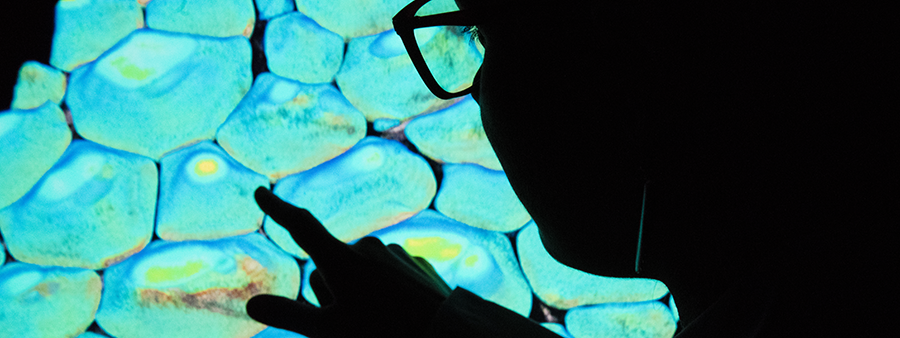MS in Biophotonics

The Department of Biomedical Engineering offers a Master of Science degree in Biophotonics that can be completed on a full-time or part-time schedule. The program prepares students for careers that require an understanding of light and tissue interactions. Students research the development of new bio- and nano-photonic technologies and use these technologies to advance biomedical and biopharmaceutical product development.
The program is administered by the Department of Biomedical Engineering with additional support from the Department of Electrical and Computer Engineering and the Data Intensive Studies Center. Students may choose between non-thesis and thesis program tracks.
Non-Thesis Program
The non-thesis MS program in Biophotonics consists of 10 courses and 30 SHUs. Students must also complete a hands-on research project or internship during their course of study.
Core Courses (required):
- BME 141: Analytical Tools for Biomedical Engineering
- BME 151: Introduction to Biophotonics
- BME 215: Optics and Wave Motion
Lab Course* (choose one):
- BME 156: Biophotonics Lab
- BME 157: Biomaterial Characterization Lab
*If lab courses are not offered in a given year, the program requirement may be replaced with BME 293 - Special Topics: Non-Thesis Graduate Research.
Project Course (required):
- BME 290: Hands-on Project or Internship
Elective Courses (choose four):
- BME 100: Design for Medical Instrumentation
- BME 143: Biological Systems Analysis
- BME 193: Machine Learning-based Analysis of Optical Signals and Images
- EE 125: Digital Signal Processing
- EE 133: Digital Image Processing
- EE 193: Nanophotonics
- Relevant coursework approved by the program director
Professional Development (choose one):
- EM 211: Lean Six Sigma
- EM 231: Project Management Strategies and Methodologies
- EM 241: Strategic Management in the Era of Big Data Analytics
- EM 254: Advancing Innovation: Breakthrough Methodologies for Technology Firms
- EM 261: Leadership for Technology Professionals
- EM 262: Negotiation and Conflict Resolution for Engineers and Technologists
Thesis Program
The thesis MS program in Biophotonics consists of 7 courses, a thesis, and 30 SHUs. Thesis students will pursue in-depth knowledge and research experience specific to their identified topic, while also gaining a broad understanding of biophotonic concepts.
Core Courses (required):
- BME 151: Introduction to Biophotonics
- BME 215: Optics and Wave Motion
Research Proposal (required):
- BME 299: Original Research Proposal
Elective Courses (choose four):
- BME 100: Design for Medical Instrumentation
- BME 141: Analytical Tools for Biomedical Engineering
- BME 143: Biological Systems Analysis
- BME 193: Machine Learning-based Analysis of Optical Signals and Images
- EE 125: Digital Signal Processing
- EE 133: Digital Image Processing
- EE 193: Nanophotonics
- BME 256/257: Biomaterial Characterization Laboratory I or II
Professional Development (choose one):
- EM 211: Lean Six Sigma
- EM 231: Project Management and Software Methodologies
- EM 241: Digital Marketing: Strategy and Applications
- EM 261: Leadership for Technical Professionals
- EM 262: Conflict Resolution
Thesis (required):
- BME 295/296: MS Thesis
Fifth-Year Master's Degree Program
The School of Engineering offers exceptional Tufts undergraduate students the option of pursuing a combined Bachelor of Science and Master of Science degree (BS/MS) as a thesis or non-thesis program.